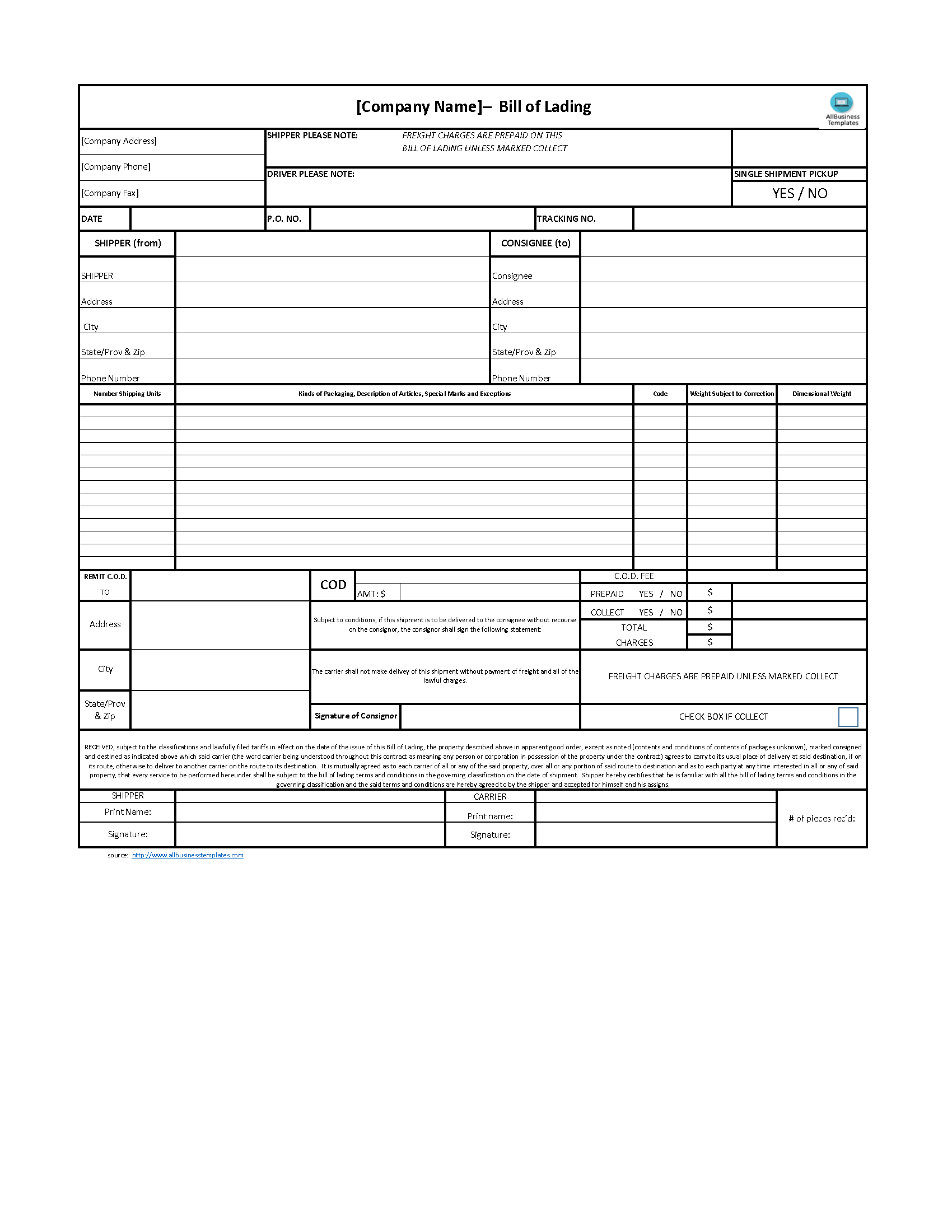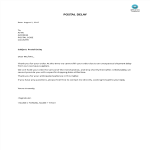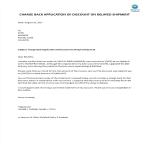Bill of Lading Excel Template
Save, fill-In The Blanks, Print, Done!

Download Bill of Lading Excel Template
Microsoft Spreadsheet (.xlsx)- This Document Has Been Certified by a Professional
- 100% customizable
- This is a digital download (60.19 kB)
- Language: English
- We recommend downloading this file onto your computer.
Why do we need a bill of lading template? What is the process for creating a bill of lading? Download our sample template that has everything you need. It's easy to use and customize, and it has everything you need to create a professional-looking document. Give it a try today!
A Bill of Lading (B/L) is a legal document that serves as a receipt, contract, and title of ownership for the shipment of goods in the context of freight and cargo transportation. It is one of the most important documents in the shipping and logistics industry and plays a crucial role in international trade and domestic shipping.
Here are the key components and purposes of a Bill of Lading:
- Receipt of Goods: The Bill of Lading serves as proof that the goods have been received by the carrier (shipping company or freight forwarder) for transport. It typically includes details about the quantity, type, and condition of the goods.
- Contract of Carriage: It is a contractual agreement between the shipper (usually the seller or exporter) and the carrier. The Bill of Lading outlines the terms and conditions of the transportation, including the agreed-upon route, destination, and delivery timeframe.
- Title of Ownership: In some cases, a Bill of Lading can also serve as a document of title, indicating that the bearer of the Bill of Lading has ownership rights over the goods. This is especially relevant in cases where goods are being transported on credit or under specific trade agreements.
- Transferability: Depending on the type of Bill of Lading, it can be negotiable or non-negotiable. A negotiable Bill of Lading can be transferred to a third party, often through endorsement, making it a valuable financial instrument in international trade finance.
- Legal Protection: The Bill of Lading provides legal protection to both the shipper and the carrier. It details the responsibilities and liabilities of each party during the transportation process.
- Documentation for Customs: It is a critical document for customs clearance at the destination port or border. Customs authorities use the Bill of Lading to verify the cargo being imported or exported and to assess duties and taxes.
- Three Original Copies: Typically, three original copies of the Bill of Lading are issued: one for the shipper, one for the consignee (receiver), and one for the carrier. Each copy is marked as "original" to prevent duplication and ensure the authenticity of the document.
- Types of Bills of Lading: There are several types of Bills of Lading, including:
- Straight Bill of Lading: Non-negotiable and typically used when payment has been made in advance.
- Order Bill of Lading: Negotiable and transferable to other parties through endorsement.
- Through Bill of Lading: Covers the entire transportation journey when multiple modes of transport are involved (e.g., truck, ship, train).
- Information Included: A Bill of Lading includes essential information such as the shipper's and consignee's names and addresses, the description of the goods, weight, dimensions, shipping marks, and any special instructions.
Overall, the Bill of Lading is a critical document that ensures transparency, accountability, and legal protection in the process of transporting goods, especially in the context of international trade and maritime shipping. It plays a crucial role in facilitating the movement of goods while safeguarding the interests of all parties involved.
Download this Bill of Lading Excel Template and use it to manage your shipments and keep track of your orders. It is also a great way to track your expenses and make sure that all your shipments are tracked properly.
DISCLAIMER
Nothing on this site shall be considered legal advice and no attorney-client relationship is established.
Leave a Reply. If you have any questions or remarks, feel free to post them below.
Related templates
Latest templates
Latest topics
- Excel Templates
Where do I find templates for Excel? How do I create a template in Excel? Check these editable and printable Excel Templates and download them directly! - GDPR Compliance Templates
What do you need to become GDPR compliant? Are you looking for useful GDPR document templates to make you compliant? All these compliance documents will be available to download instantly... - Google Docs Templates
How to create documents in Google Docs? We provide Google Docs compatible template and these are the reasons why it's useful to work with Google Docs... - IT Security Standards Kit
What are IT Security Standards? Check out our collection of this newly updated IT Security Kit Standard templates, including policies, controls, processes, checklists, procedures and other documents. - Letter Format
How to format a letter? Here is a brief overview of common letter formats and templates in USA and UK and get inspirited immediately!
cheese




